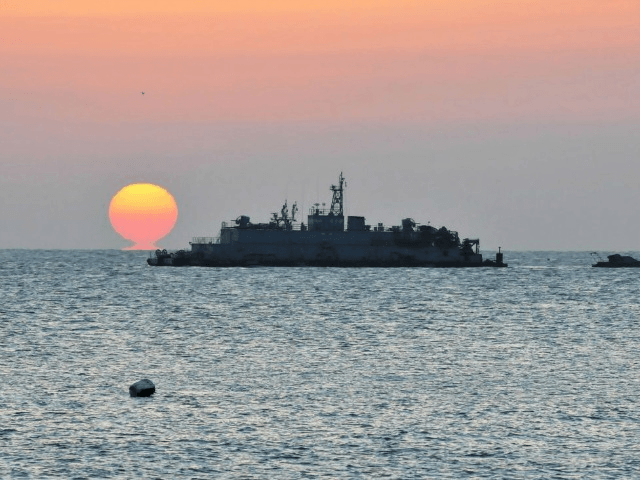The government of New Zealand has proposed an intelligence-sharing initiative, approved on Friday, with small Pacific island states meant to catch North Korean cargo ships disguised with flags from Vanuatu, Tuvalu, and other regional powers.
Many small Pacific island states allow any ship to register with its government and fly its flag, a policy the communist regime in Pyongyang has used to violate UN sanctions and conduct trade with other rogue nations that continue to do business with it.
“What we’ve said is that we’d be prepared to help with intelligence gathering to identify them so that Pacific states can deregister them, and be in compliance with UN sanctions regulations,” New Zealand’s Foreign Affairs Minister Gerry Brownlee confirmed on Friday from Samoa, where he was conducting a visit to propose the initiative.
The nations involved are members of the Pacific Islands Forum, a regional body, according to New Zealand’s Newshub.
The leaders of the region’s Pacific island nations have protested that they cannot stop a North Korean vessel from flying their national flags because they simply do not know whether the ships registered in the country are from North Korea. “We really don’t know whether some Korean boats are flying our flags. I do not have any information about this,” Vanuatu Prime Minister Charlot Salwai said. Salwai has reportedly placed the policy of allowing any ship to register in Vanuatu under review.
The move follows condemnation from the Pacific Islands Forum for North Korea’s most recent nuclear test, which Pyongyang claimed in its national media was a “perfect” detonation of a hydrogen bomb. The statement condemning the blast notes particularly that the American island of Guam, which North Korea has repeatedly threatened with a missile attack, is part of their region and any threat to Guam constitutes a threat to the south Pacific generally.
“It shows a real unity of purpose and solidarity with the global community in doing everything we can to bring that reckless and dangerous regime to its senses,” Australian Prime Minister Malcolm Turnbull said of the statement. Australia is participating in the forum, and according to Australia’s News.com.au, “The countries vowed to strip registration from any North Korean fishing boats on their books.”
Reports this week suggest that the United States is seeking United Nations approval to help these states monitor North Korean ships and keep them from violating UN sanctions by using their flags. The New York Times reported on Wednesday that a draft UN resolution would “effectively empower the United States Navy and Air Force to interdict North Korean ships at sea, inspect them to determine whether they are carrying weapons material or fuel into the country, and use ‘all necessary measures’ to enforce compliance.”
The draft allows the Security Council to “designate vessels for nonconsensual inspections” if authorities suspect they are attempting illegal trade for North Korea.
The draft resolution, Breitbart News reported on Thursday, also proposes to blockade North Korea’s oil trade, which would significantly impair the nation’s small economy. Such a draft resolution would need support from China and Russia, permanent members of the Security Council, to pass. While China is North Korea’s largest trading partner, it has signaled potential support for new sanctions; Russian president Vladimir Putin has categorically rejected any attempt at imposing new sanctions on Pyongyang.
While the Security Council had recently imposed sanctions on North Korea’s seafood and coal industries, Kim Jong-un rejected the sanctions pressure and continued to engage in provocative acts, alarming neighboring Japan and South Korea. In late August, North Korea launched a missile towards Japan’s northernmost island Hokkaido, triggering government alerts urging people to find “sturdy” buildings in case the missile landed in a city. The missile ultimately fell into the Pacific Ocean but nonetheless triggered stern rebukes from Japan and South Korea, and U.S. President Donald Trump announced he would approve the sale of more high-tech weapon equipment for both countries to protect from a North Korean attack.
North Korea followed that test up with the nuclear explosion on Sunday, which it claims is the product of domestic development and can be replicated.
South Korean officials have warned in media reports that there is evidence North Korea is planning another intercontinental ballistic missile (ICBM) launch this weekend.

COMMENTS
Please let us know if you're having issues with commenting.